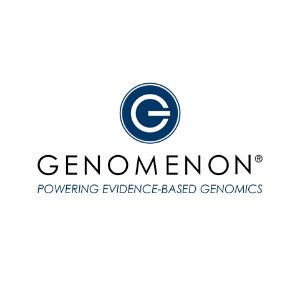Earlier this year, I told you about our big plans for 2020, which included the development of a new diagnostic tool for ectodermal dysplasias. Today, I am excited to share with you more details.
Since last summer, we have been working with Genomenon, a genomic health IT company, to develop a comprehensive, interactive database for ectodermal dysplasias. Genomenon has what they call a Mastermind Genomic Search Engine used by genetics labs to accelerate diagnosis.
Genomenon announced last week that it was celebrating Rare Disease Week 2020 by making the comprehensive genomic landscape of ectodermal dysplasias freely available to clinical and pharma researchers. They developed a Mastermind Genomic Landscape™ for the primary causative genes associated with ectodermal dysplasias.
How the Search Engine Works
Here’s what that means. This search engine includes all of the ectodermal dysplasias, the genes, and the clinical symptoms for the individual types of ectodermal dysplasias.
For example, your doctor could enter a type of ectodermal dysplasia into this search engine and be given all of the different causative genes, its symptoms and medical articles, including patient pictures that visually represent the syndromic features. They could also search by gene, symptoms or other keywords. The search engine does the work for you, compiling all relevant information into one place for easier searching.
Here’s how Genomenon explains it.
“Expanding the body of knowledge on a disease requires access to all of the currently published medical and genetic literature on the disease. Unfortunately, finding this information can be like looking for a needle in a haystack. With the current publication rate at about 3 million articles a year, any rare disease makes up an extremely minute portion of this mass of literature. Mastermind’s Artificial Intelligence and Machine Learning processes find all of the available evidence and present it for researchers and clinicians, ensuring the best possible outcomes.”
It’s Personal for Genomenon
Genomenon’s mission is to ensure that every rare disease patient is accurately diagnosed and properly treated. Its founder has a very personal connection to this project.
According to Genonmenon’s announcement on their website, “Genomenon founder Dr. Mark Kiel was diagnosed with ectodermal dysplasia at age 13, which led to a connection with NFED and, ultimately, to his chosen career as an MD, PhD in molecular genetic pathology. Once Genomenon was able to produce data that could help NFED in their search for treatments and a cure, he reached out to offer assistance.”
How a Family Can Access
We are grateful to Dr. Kiel and everyone at Genomenon for making this ectodermal dysplasias dataset available to clinicians and researchers around the world.
The portal for our families will not launch until later this year. We are working with their team to provide a tool that will be less technical and more user friendly for family use. Stay tuned!
Until then, the NFED is excited that ectodermal dysplasia is the second rare disease that Genomenon has produced a landscape for. Ultimately, this web-based tool will help families understand their diagnosis, help providers diagnose earlier and more accurately and to be a tool for researchers interested in ectodermal dysplasias.

I am so excited about this news! I am 70 years old and have several family members with some form of ED and I would love to finally know what kind! Thank you.
Hi, Elizabeth. Getting a diagnosis would hopefully provide answers to you. We understand your desire to finally have that information. You may also consider our Get a Test, Give a Test promotion to get a diagnosis. You can learn more at https://nfed.org/events/get-a-test-give-a-test/. Hope this helps! Jodi, NFED, Director, Marketing and Communications